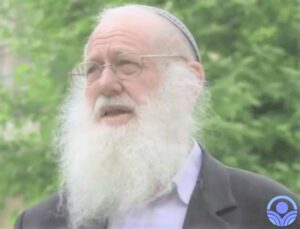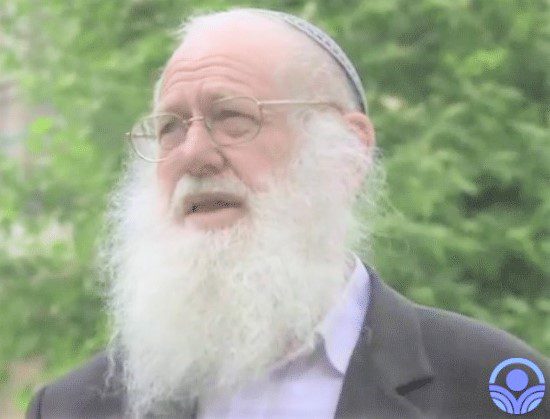“Look to the Rock from which you are hewn.”
HaRav Dov Begon, Head of Machon Meir

The Prophet Isaiah directs us on how we can find consolation and grapple with the difficulties facing Israel along their uphill, obstacle-ridden path of thousands of years. He counsels, “Look to the rock from which you are hewn, and to the hole of the pit from which you were dug out. Look to Abraham your father, and to Sarah who bore you. For he was but one when I called him, and I blessed him and increased him” (Isaiah 51:1-2).
Abraham was one and unique in his generation. He publicized faith in Hashem, the G-d of the world, by means of his family and his generation, and through the power of his own faith. Ultimately he became the father of many nations. All of mankind was influenced by him, and a great and holy nation emerged from him. And just as he was one against the many, yet succeeded, so have the Jewish People withstood all those who rose up against them, and they will continue to do so, like a mighty boulder and a well-rooted tree.
“Look to Sarah who bore you.” Sarah was physically barren, yet in profound old age she bore a child, aided by a divine miracle. It is the same with Israel’s miraculous survival. Their development contradicts the laws of nature (Ibid., Malbim). We must reflect upon the rock from which we were hewn. It says, “For from the top of the rocks I see [this nation] and from the hills I behold it” (Numbers 23:9). Rashi comments, “I look at their origin and at the beginning of their roots, and I behold them strongly founded like yonder rocks and mountains, which evoke the patriarchs and matriarchs.” To learn about the strength of the tree, one must gaze upon its roots. The stronger and deeper they are, the better the tree will hold fast, such that all the winds in the world will not uproot it. Likewise, to know about the hardness and special qualities of a given rock, one must ponder the boulder from which it was hewn.
Right now, we must look to our roots. We must study and know ourselves by studying the character and actions of the Patriarchs and Matriarchs, who were people of faith and noble traits, and who clung to G-d in all changing circumstances. They are the root of us all, and by walking in their path we shall continue to grow and flourish, and to produce sweet fruits. Then through us shall be fulfilled the words of Isaiah (Ibid., v. 3): “For the L-rd shall comfort Zion. He will comfort all her waste places. And He will make her wilderness like Eden, and her desert like the garden of the L-rd. Joy and gladness shall be found in it, thanksgiving, and the voice of melody.”
“A land where you will not lack anything”
Eretz Yisrael is called a “desirable land” (Psalm 106:24), a “good land” (Deuteronomy 8:7), a “land where you will not lack anything” (Deuteronomy 8:9). Ba’al HaTurim comments on this last verse, saying that Eretz Yisrael “heads all the lands of the earth.” That is, it is the start of all the lands and all the world’s inhabitants. Just as the head and heart are what give life to the whole body, so is Eretz Yisrael the place where G-d chose to sustain, illuminate and shower blessing upon the entire world, from start to finish.
Indeed, our sages comment on the expression “desirable [chemdah] land” as meaning that all the nations of the earth crave [chomdim] this land. Thirty-one kings ruled over it when the Jewish People were exiting Egypt.
All along, foreigners craved our land. Over the course of the generations numerous efforts were made by various peoples, religions and rulers to take control of it. All of them thought that ruling over Eretz Yisrael would give them influence over the whole world. In our own generation as well, our Arab neighbors and a large portion of the nations have not resigned themselves to our ruling over Eretz Yisrael and Jerusalem, heart of the world. They are making great efforts to achieve their goal. Yet, “He who sits in the heavens laughs. The L-rd mocks them” (Psalm 2:4).
The Land of Israel remains faithful only to its children who are returning to it after thousands of years of exile for the purpose of bringing light to all mankind. The day is not far off when we will see with our own eyes how “the L-rd has chosen Zion, desired it for His habitation” (Psalm 132:13); and “chosen Jacob for Himself; Israel for His special possession” (Psalm 135:4). We will also see how “the L-rd will not cast off His people, nor will He forsake His inheritance” (Psalm 94:14).






